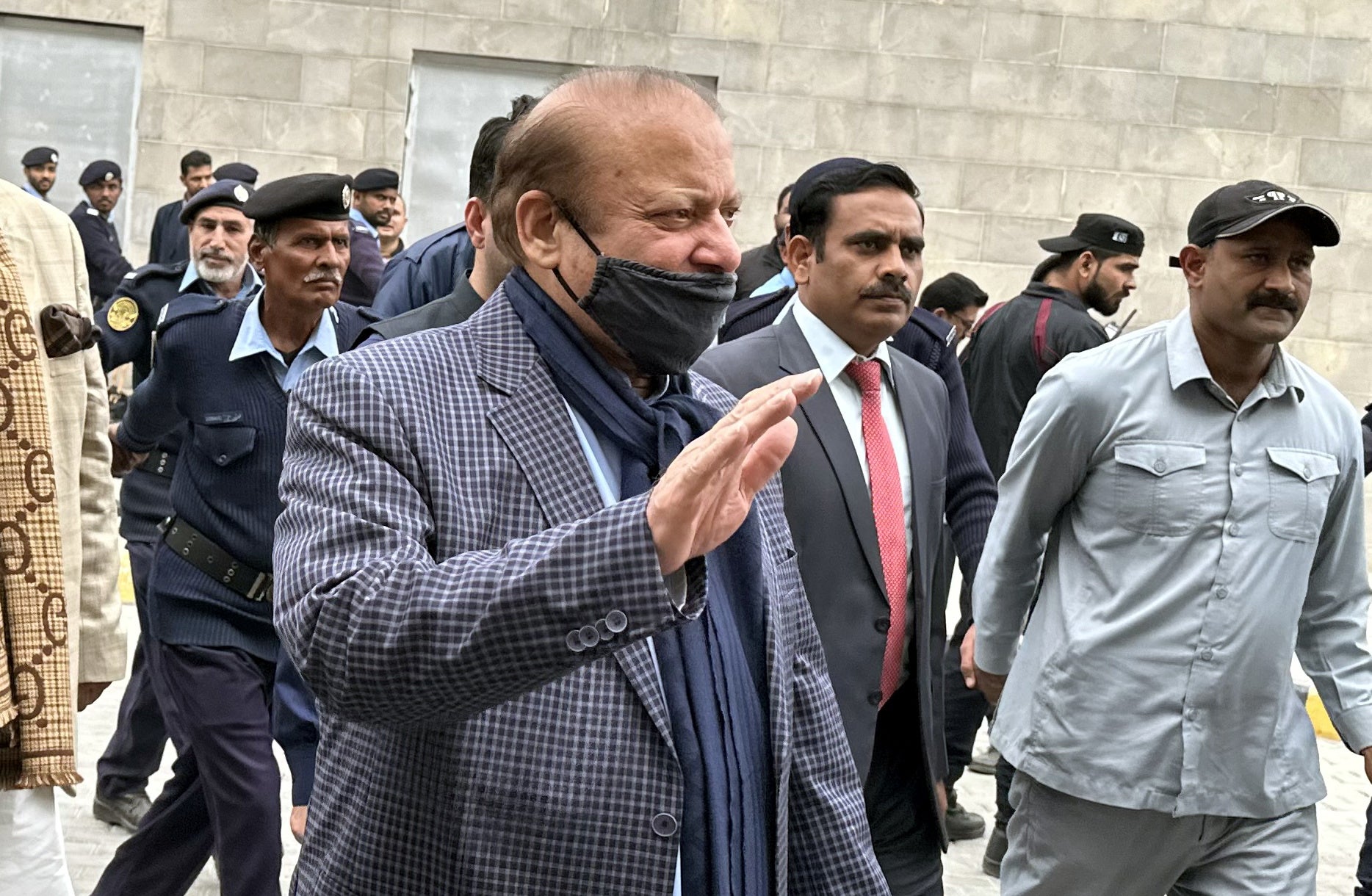Pakistan acquits former PM Nawaz Sharif in a graft case. Can he contest general elections?
A Pakistani court has acquitted former Prime Minister Nawaz Sharif in a graft case, removing a major obstacle for him to run in parliamentary elections in February

A Pakistani court acquitted former Prime Minister Nawaz Sharif in a graft case on Wednesday, removing a major obstacle for him to run in parliamentary elections in February.
The Islamabad High Court's decision comes weeks after it restored Sharif's right to appeal a 2018 conviction in a case relating to the purchase of luxury apartments in London. Sharif, who served as prime minister three times, returned to Pakistan in October, after four years of self-exile abroad to avoid serving out a 10-year prison sentence on corruption charges.
Sharif's acquittal leaves only one more legal hurdle standing between him and an election run. He also needs to be acquitted on another set of graft charges, related to his seven-year sentence for failing to disclose how his family set up a steel mills in 1999.
Sharif, who had appealed the first graft conviction last week, was in court on Wednesday and welcomed the ruling. “I am grateful ... God has made us victorious today,” he said.
Sharif stepped down as prime minister in 2017 over the corruption charges. In July 2018, he was sentenced to 10 years in the London apartments' case and in December that year, he was sentenced to a further seven years in the steel mills case.
Following the two convictions, Sharif was disqualified from politics. Pakistani law bans those convicted from holding or running for public office.
Once free of the legal hurdles, he is widely expected to be a top contender in the Feb. 8 parliamentary elections, and is likely to run for a seat in the National Assembly, the lower house of the parliament.
A year after Sharif stepped down, the 2018 parliamentary elections brought widely popular cricket start turned Islamist politician Imran Khan to power.
Khan — Sharif’s successor and main political rival — was ousted in a no-confidence vote in April 2022 and is now in prison, serving a three-year sentence on corruption charges. However, Khan remains Pakistan’s leading opposition figure and his Pakistan Tehreek-e-Insaf party enjoys a large following.
Also Wednesday, Khan named one of his lawyers, Gohar Khan, as candidate for his party's top post ahead of an internal party election. The two Khans are not related. Since his own conviction on corruption charges, Imran Khan cannot head his party in the elections.
Bookmark popover
Removed from bookmarks